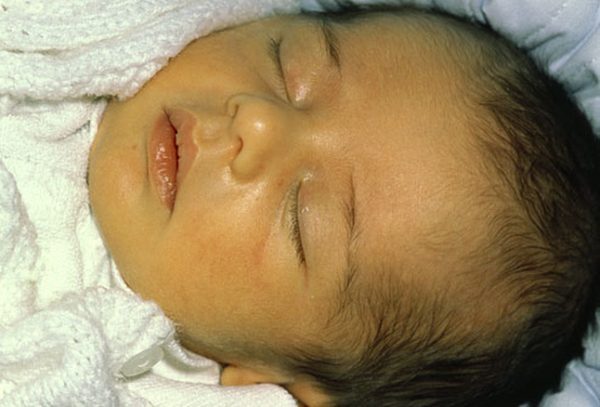Endometrial thickness treatment is a common thought for women of all ages as lifestyle changes. The thickness of the endometrial lining plays a critical role in a woman’s reproductive health. If it becomes abnormally thick, it may affect fertility, cause irregular periods, or signal hormonal imbalance. Fortunately, there are safe and effective ways to manage this condition at home. This blog will explore how to reduce endometrial thickness using natural methods, suggest lifestyle changes, and offer insight into holistic wellness approaches—all aimed at supporting healthier menstrual and fertility outcomes.
If you’re looking for personalized and compassionate care, KJK Hospital is one of the reputed centres known for guiding women through such health concerns with expertise and empathy.
What Is the Endometrial Wall?
The endometrial wall, or endometrium, is the innermost lining of the uterus. Each month, it thickens to prepare for a possible pregnancy. If conception does not occur, the thickened lining sheds during menstruation. It plays a crucial role in fertility, embryo implantation, and menstrual regulation.
Why Does the Endometrial Wall Thicken Abnormally?
Endometrial thickening can occur for various reasons, including:
- Hormonal imbalance: Excess estrogen without enough progesterone can cause the lining to overgrow.
- Polycystic ovary syndrome (PCOS): Often associated with irregular periods and unopposed estrogen.
- Obesity: Extra fat tissues increase estrogen production.
- Medications: Some hormone therapies can affect the endometrial lining.
- Other conditions: Diabetes, thyroid disorders, and perimenopause can also contribute.
9 Natural Ways to Reduce Endometrial Thickness
Here are natural and holistic ways to manage and possibly reduce thickened endometrial lining. Always consult a doctor before starting any new regimen.
1. Adopt an Anti-inflammatory Diet
Inflammation can worsen hormonal imbalance. Focus on foods that reduce inflammation, such as:
- Leafy greens (spinach, kale)
- Fatty fish (salmon, sardines)
- Berries, turmeric, ginger
- Whole grains and nuts
- Avoid processed foods, sugary snacks, and red meats.
2. Manage Estrogen Levels
Estrogen dominance is one of the leading causes of endometrial thickening. Natural methods to manage estrogen include:
- Eating cruciferous vegetables (broccoli, cauliflower)
- Reducing dairy and soy intake
- Using flaxseeds to balance hormones
- Drinking green tea
- These help the liver metabolize excess estrogen efficiently.
3. Regular Physical Activity
Exercise promotes hormonal balance and supports overall reproductive health. Aim for at least 30 minutes of moderate activity 5 times a week:
- Walking
- Yoga
- Swimming
- Cycling
- It also supports weight management, which in turn controls estrogen levels.
4. Herbal Remedies (Under Guidance)
Certain herbs may support hormone regulation:
- Chasteberry (Vitex)
- Ashwagandha
- Turmeric
- Cinnamon
- These herbs help reduce inflammation and support healthy cycles. Use under the supervision of a healthcare provider.
5. Stress Reduction Techniques
Chronic stress disrupts hormone levels, especially progesterone. Incorporate calming practices like:
- Meditation
- Deep breathing
- Journaling
- Art therapy
- Gentle stretching
- These practices help regulate cortisol and promote balance.
6. Limit Exposure to Xenoestrogens
Xenoestrogens are artificial compounds that mimic estrogen in the body. They’re found in:
- Plastics (avoid microwaving plastic containers)
- Parabens in personal care products
- Pesticides
- Choose glass containers, organic produce, and chemical-free personal items.
7. Ensure Adequate Sleep
Getting enough high-quality sleep is essential for hormone regulation. The body repairs itself during sleep, which includes balancing reproductive hormones like estrogen and progesterone. Aim for 7–9 hours of uninterrupted rest each night. Establish a calming bedtime routine—avoid screens for at least one hour before bed, lower room lighting, and reduce noise. A cool, dark bedroom helps induce deeper sleep cycles, which positively influence endocrine function and uterine health.
8. Stay Hydrated
Proper hydration supports liver and kidney function, which are key in filtering out excess hormones and toxins. Water also helps maintain healthy blood flow to the reproductive organs. Drink at least 8–10 glasses of clean water daily. Herbal teas such as dandelion, nettle, or ginger can offer additional detox support and help reduce inflammation. Avoid sugary drinks, alcohol, and excess caffeine which can dehydrate and disrupt hormone balance.
9. Try Castor Oil Packs (with guidance)
Castor oil packs applied to the lower abdomen may improve lymphatic drainage, reduce inflammation, and enhance circulation to the pelvic area. This increased blood flow may support the natural shedding of the uterine lining and improve hormonal balance. Soak a cloth in castor oil, place it over your abdomen, and cover it with a hot water bottle for 30–45 minutes. Use this method only under the guidance of a qualified healthcare provider and avoid it during menstruation, pregnancy, or if trying to conceive that cycle.
Stay Calm and Believe in the Process
Reducing endometrial thickness naturally is not an overnight fix. It requires commitment, lifestyle consistency, and emotional calm. Women undergoing fertility treatments or managing hormonal conditions often feel overwhelmed—but patience is key. Trust your body, nurture it, and allow time for healing. Emotional well-being directly supports physical balance. Gentle self-care, spiritual practices, or simply being in nature can make a significant difference.
Remember, your journey is unique—and every positive choice you make adds up.
Conclusion
Managing endometrial thickness treatment through natural methods offers a safe and empowering alternative for many women. However, these strategies should always be supported by medical consultation. It’s important to undergo regular health checks, track menstrual changes, and seek personalized advice.
If you suspect your endometrial lining is affecting your health or fertility, consult an experienced gynecologist. KJK Hospital is recognized for providing expert reproductive care with a personalized approach. Let your healing begin with understanding, balance, and support.
FAQs
1. What is the normal endometrial thickness?
Normal thickness varies depending on the menstrual cycle phase. It ranges from 2–4 mm post-menstruation to 7–14 mm around ovulation. Anything above 14–16 mm may be considered thickened.
2. Can thickened endometrial lining cause infertility?
Yes, an overly thick endometrium may affect embryo implantation and reduce pregnancy chances. It can be a concern for women undergoing IVF or trying to conceive naturally.
3. How do I know if I have a thick endometrial lining?
Common signs include heavy or irregular periods, pelvic pain, or spotting between cycles. A transvaginal ultrasound is used to confirm diagnosis.
4. Is it possible to reduce endometrial thickness naturally?
Yes, many women use the endometrial thickness treatment to benefit from lifestyle changes, a balanced diet, and stress reduction. These approaches support hormonal balance and overall uterine health.
5. Do hormonal imbalances always cause thick endometrial lining?
Not always. Other causes include medications, age, obesity, or underlying conditions like PCOS or thyroid disorders.
6. Is it safe to try herbal remedies on my own?
No. Herbal remedies should be taken only under medical supervision. They can interact with medications or cause side effects if misused.
7. Will exercise help in reducing thickness?
Regular moderate exercise improves hormone regulation, supports metabolism, and aids weight management—all of which can help reduce thickening.
8. Can stress worsen the condition?
Yes. Stress elevates cortisol, which can affect estrogen and progesterone balance. Mind-body techniques help ease these effects.
9. Should I avoid all dairy or soy?
Moderation is key. Some people may benefit from limiting dairy or soy, especially if they notice symptoms of hormonal imbalance.
10. Can I get pregnant with a thick endometrial lining?
It depends on the underlying cause. Some women may still conceive, but monitoring and treatment can improve outcomes. Always work with a doctor for the best fertility guidance





